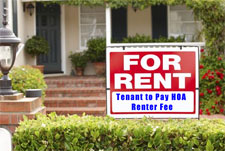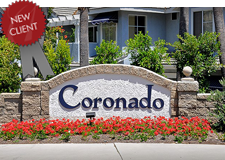 We have previously blogged about Federal Housing Administration (FHA) certification for condominium associations. Recently, the California legislature proposed AB 596 (Daly), which would add a separate document to the Annual Budget Package disclosing whether the condominium association is FHA approved. This bill would also require a second document disclosing whether the condominium association is approved by the federal Department of Veterans Affairs (VA).
We have previously blogged about Federal Housing Administration (FHA) certification for condominium associations. Recently, the California legislature proposed AB 596 (Daly), which would add a separate document to the Annual Budget Package disclosing whether the condominium association is FHA approved. This bill would also require a second document disclosing whether the condominium association is approved by the federal Department of Veterans Affairs (VA).
When a community is a condominium project, AB 596 requires that the Annual Budget Package include a statement “in at least 10-point font on a separate piece of paper and in the following form: ‘Certification by the Federal Housing Administration may provide benefits to members of an association, including an improvement in an owner’s ability to refinance a mortgage or obtain secondary financing and an increase in the pool of potential buyers of the separate interest. This common interest development [is/is not (circle one)] a condominium project. The association of this common interest development [is/is not (circle one)] certified by the Federal Housing Administration.” A similar statement on a second piece of paper must be made regarding VA certification.
Industry experts have expressed concern that an association that was certified at the time of the disclosure may not retain that certification throughout the course of the fiscal year. FHA approval expires every two years and requires a recertification process. If a community no longer meets the FHA approval guidelines, recertification may be rejected. If approval is granted, but the FHA learns of additional factors, approval may be withdrawn. HUD does not currently have a notification system in place to inform the association that FHA approval has expired or been withdrawn.
CAI’s California Legislative Action Committee is requesting amendments to the bill that would direct homeowners to the official FHA and VA Approval websites to verify if the community is FHA or VA certified. AB 596 has passed the Assembly, and is currently in the Senate.
 |
Association boards and managers are encouraged to regularly check for FHA Approval at the Official HUD Directory and VA Approval at the Official VA Directory to verify the current status of their communities. We will update our blog if and when AB 596 is ultimately signed into law. |
Blog post authored by Tinnelly Law Group’s Director of Business Development, Ramona Acosta
 We are proud to announce that The Crossings Rowhouse Association has selected Tinnelly Law Group as their associations’ legal counsel.
We are proud to announce that The Crossings Rowhouse Association has selected Tinnelly Law Group as their associations’ legal counsel. HOA Lawyer Blog
HOA Lawyer Blog


 One problem that arises in the context of enforcing homeowners association (“HOA”) governing documents pertains to how consistently certain use restrictions in the governing documents are enforced over time. For example, if a HOA has historically failed to enforce a particular restriction, a decision to enforce that restriction against a particular owner may subject the HOA to claims of “selective enforcement” and/or that the HOA’s enforcements efforts are being exercised in an arbitrary and capricious fashion. These claims not only hinder the cost-efficient resolution of disputes, but could significantly undermine the HOA’s enforcement authority.
One problem that arises in the context of enforcing homeowners association (“HOA”) governing documents pertains to how consistently certain use restrictions in the governing documents are enforced over time. For example, if a HOA has historically failed to enforce a particular restriction, a decision to enforce that restriction against a particular owner may subject the HOA to claims of “selective enforcement” and/or that the HOA’s enforcements efforts are being exercised in an arbitrary and capricious fashion. These claims not only hinder the cost-efficient resolution of disputes, but could significantly undermine the HOA’s enforcement authority.
 We have previously
We have previously  We are proud to announce that Avelina Homeowners Association has selected Tinnelly Law Group as their associations’ legal counsel.
We are proud to announce that Avelina Homeowners Association has selected Tinnelly Law Group as their associations’ legal counsel.
 We are proud to announce that Coronado at Aliso Viejo Homeowners Association has selected Tinnelly Law Group as their association’s legal counsel.
We are proud to announce that Coronado at Aliso Viejo Homeowners Association has selected Tinnelly Law Group as their association’s legal counsel.
 We are proud to announce that Spanish Walk Community Association has selected Tinnelly Law Group as their associations’ legal counsel.
We are proud to announce that Spanish Walk Community Association has selected Tinnelly Law Group as their associations’ legal counsel. *New Regulations
*New Regulations